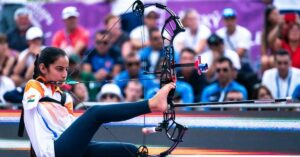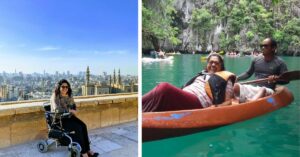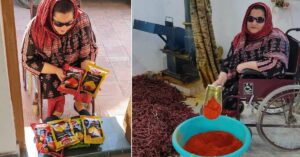Exclusive: He Lost His Sight but Bagged 13 Medals and a Rhodes Scholarship!
A visually-impaired student of Law (LLB) at Dr Ambedkar College, Deekshabhoomi clinched almost 20 awards, including 13 gold medals, at the 105th convocation of Rashtrasant Tukadoji Maharaj Nagpur University (RTMNU).
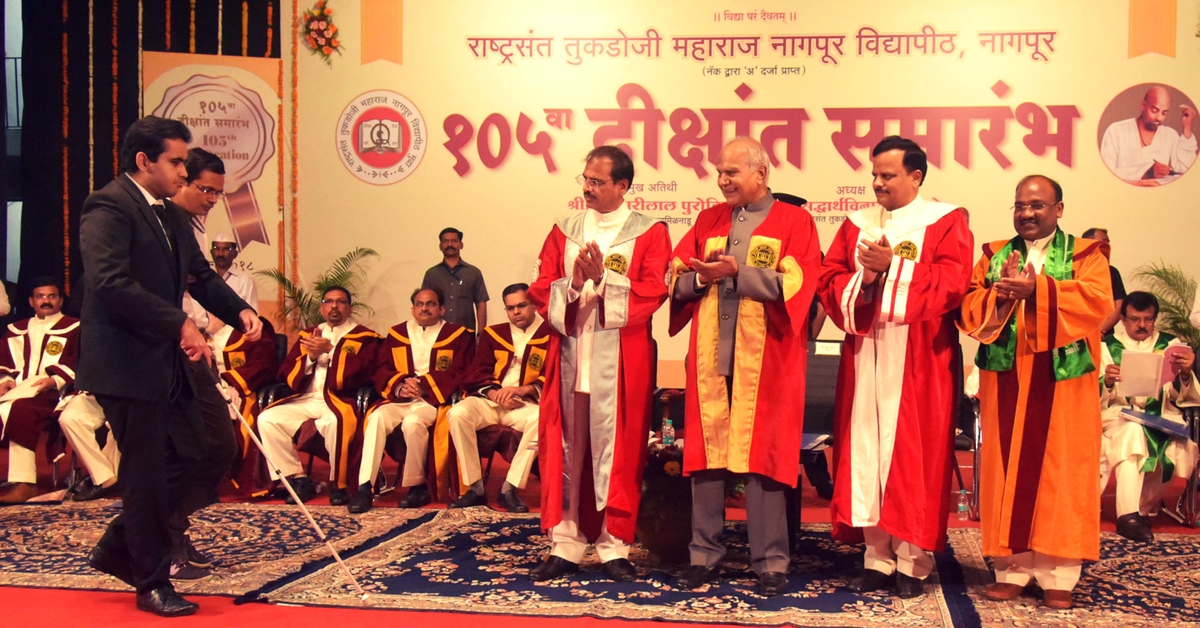
Rahul was only six-months-old when his family realised that his eyes didn’t respond to visual stimuli the same way as compared to other kids his age. For almost four years, they ran from pillar to post and got numerous tests done with no success. While some doctors deemed it as a passing phase, others failed to diagnose what his condition was all about.
It was only in 1998 when a four-year-old Rahul was taken to Chennai-based Shankar Netralaya, was he diagnosed with a congenital retinal condition that he had been affecting his vision from birth.
“Growing up I have had less than 5% vision. My visual acuity is 3/60 which what I can see at a distance of three meters, an average person can see at a distance of 60 meters. So my level of vision is such that I am completely blind for all practical purposes,” says Rahul speaking to The Better India.
Today at 23, Rahul is the country’s first disabled student to win the prestigious Rhodes scholarship to pursue a Bachelor of Civil Law and M.Phil from the esteemed Oxford University.
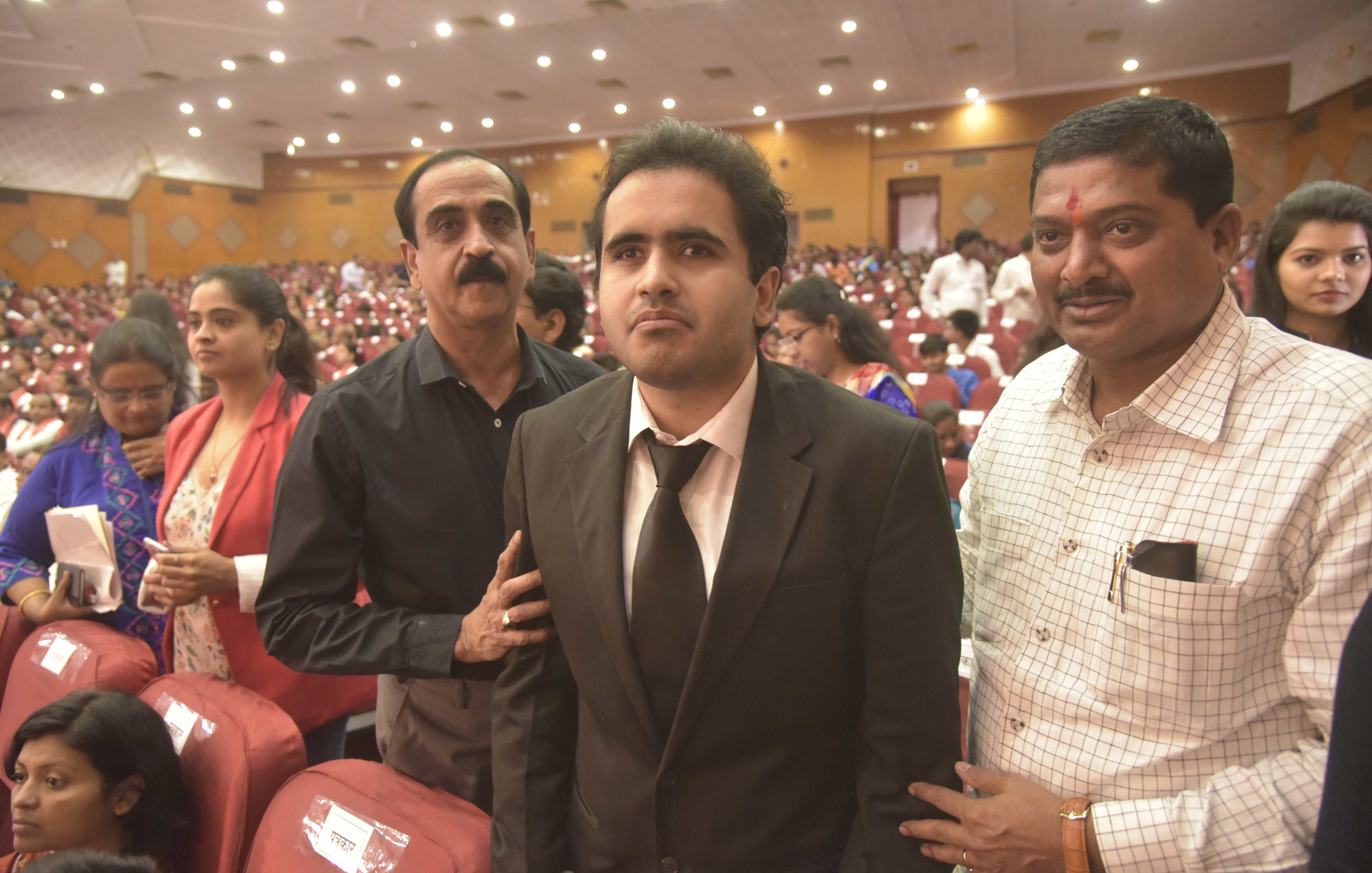
It is also important to say that Rahul doesn’t attach a lot of emphasis to this newly bestowed label, as he doesn’t think his disability is his defining attribute.
Though the general thought process for most parents of children with disabilities where he grew up was to send their kids to a special school, Rahul’s parents fought for his right to an inclusive education. And so, from 2000-2010 he studied at a mainstream school in the city which was funded by The Blind Relief Association.
The school hadn’t had any students with disabilities until Rahul was admitted. Despite the many challenges he faced, the underlying idea for the boy as well as his family was to learn from their mistakes and move forward in a very constructive way.
Soon after he finished his junior college, Rahul decided to pursue law.
Speaking about his motivation and inclination to explore a career in law, the 23-year-old – who works as an associate for Trilegal – says, “As someone with a disability, I realised at a very early age the importance of learning to advocate for yourself. Learning to assert yourself and make your voice heard. And when I knew the intricacies of self-advocacy, the next logical step for me was to advocate for others, and I knew that law was the best medium to do that.”
Rahul’s disability was further exacerbated by the fact that he lived in a small town, he says.
“Growing up there weren’t many stories of successful people with disability I learned about or could draw inspiration from. At the same time, we lacked access to adaptive technology, or infrastructure in several respects when compared to institutes in bigger cities like Mumbai or Delhi,” he says.
But once he started doing well in academics and carving a niche for himself, Rahul’s disability slowly began receding into the background.
“Your disability isn’t something that goes away; you learn to live with it. And I started coming to terms with it using the other qualities that I was able to bring to the table. Also, I believe that my disability has given me fortitude and resilience to deal with difficult challenges,” he says
Even while pursuing law after his 12th Grade, Rahul decided to take the road less traveled. While most of his peers (who had high aspirations) decided to move to MLUs abroad or in bigger cities, Rahul decided to study in his hometown, Nagpur.
“My family was of the view that MLUs had very few students with disabilities, and the ones who were able to establish a successful career were even fewer. And they didn’t want me to be on the fringes due to these attitudinal and infrastructural barriers.”
Many of Rahul’s peers who attended these law universities did share their experiences of running from pillar to post to get accommodation like a writer, getting extra time or accessible study material.
“In my hometown, I had all the resources and the support system I needed. And so, my family thought I should continue my law education here. But in hindsight, I began realising that while my peers would go to international moot court competitions, across the globe, get placed in leading law firms during campus placements and in general extract a lot of value from their college experiences, I had no such college experience to speak of.
“Apart from three or four excellent teachers who deserve full credit for moulding us, we didn’t really have the kind of exposure or platform to establish a meaningful career in law in the long run,” he says.
In the midst of all of this, Rahul’s biggest challenge, therefore, was to stay motivated and continue aspiring higher notwithstanding his immediate surroundings.
Speaking about the major challenges during the course of his internship, he says, “There were quite a few law firms that rejected me right away without telling me the reason. Without engaging with me, they had decided of their own accord that they did not have the infrastructure to accommodate someone with a disability.
“Even in a few firms where I interned, they didn’t let me go to court because they thought I wouldn’t be able to manage. And while I do understand that my security was their concern and they wouldn’t want to be blamed if something went wrong, it was restricting in some ways. Till date, despite my achievements, many tell me I should perhaps opt for a job that isn’t fast-paced or requires me to sit in one place, not move too much.”
But Rahul explains how fortunate he has been in terms of finding at least one individual in every firm he worked at who looked past his disability.
“In every place I worked, despite the challenges, I was invariably able to find individuals who were willing to look at my skill as opposed to the white cane. Every person with a disability needs such individuals at their workplace who invest in you, understand you and embrace your disability to give you the same opportunities as everyone else,” says Rahul.
But yes, attitudinal barriers continue to exist. The world is not a kind place for many visually-impaired lawyers until they prove they are exceptional.
“Until you haven’t won medals or scholarships or are so exceptional that your employers have no option but to hire you then things are quite difficult for lawyers with disabilities. Despite the advent of technology, the challenges continue to be many like inaccessible websites, inability to refer to hard copy documents, inability to independently read out from the file in court, etc,” he says.
Rahul has also co-pioneered a series of interviews featuring lawyers with disabilities to break stereotypes and foster dialogue about the inaccessibility of the legal profession. You can find it here.
Getting the Rhodes is still an achievement Rahul hasn’t been able to come to terms with.
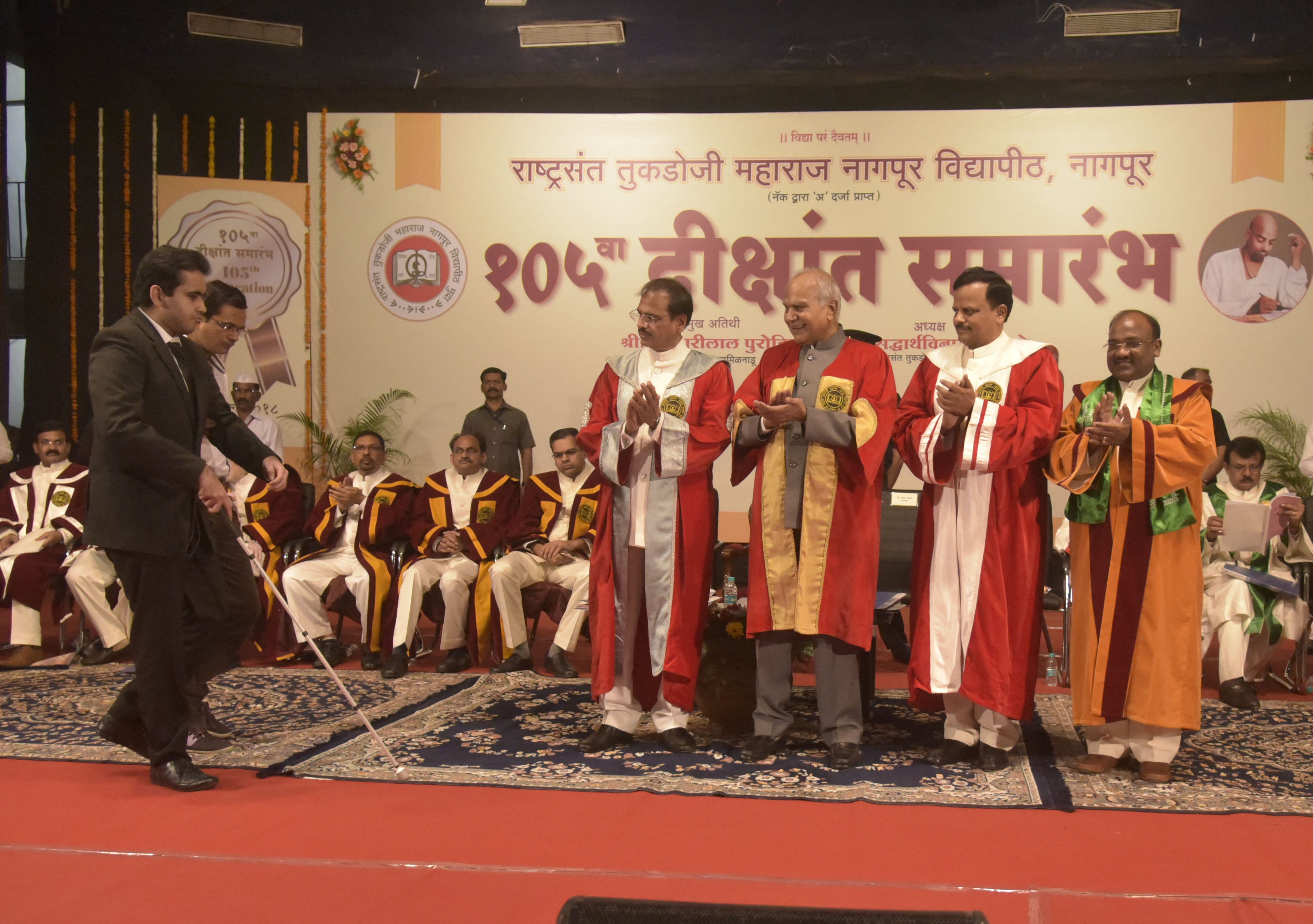
“It is something no one is prepared for. It is not something you envisage when you are out of law school because in ways more than one the scholarship is unusual for a law student to accomplish too. And though it has been five months, since the results came out, I am only trying to sink it in.”
Nonetheless, Rahul calls it a very humbling moment indeed. “It is a great honour and platform. It makes it incumbent on you to make the most of it and extract maximum value from the experience. The reason why the Rhodes means so much to me is that I can cite it is a powerful affirmation of my competence when people express doubts about what I may be able to do, given my disability,” he adds.
Read more: Lockers in Schools! Students in AP Will Stop Lugging Heavy Bags Soon
In a message to all law aspirants, including persons with disability and able-bodied, Rahul says, “It is very important to learn to hold yourself accountable and responsible for your actions. Don’t sit back with folded hands and hope things will fall into place or people will embrace you. If you don’t stop making excuses, you are not going to be able to move forward constructively.
“I have no doubt in my mind that the barriers that one has to face as a person with a disability are stultifying. But at the end of the day, the onus is on you to move past these barriers. Don’t focus on what you can’t do, focus on what is it that you CAN do. It is this attitude and hard work and not sympathies that will help you do something meaningful in the long run,” he bids adieu.
If you think Rahul’s story is commendable, write to him at [email protected].
(Edited by Vinayak Hegde)
Like this story? Or have something to share?
Write to us: [email protected]
Connect with us on Facebook and Twitter.
NEW: Click here to get positive news on WhatsApp!
This story made me
- 97
- 121
- 89
- 167
Tell Us More
We bring stories straight from the heart of India, to inspire millions and create a wave of impact. Our positive movement is growing bigger everyday, and we would love for you to join it.
Please contribute whatever you can, every little penny helps our team in bringing you more stories that support dreams and spread hope.






